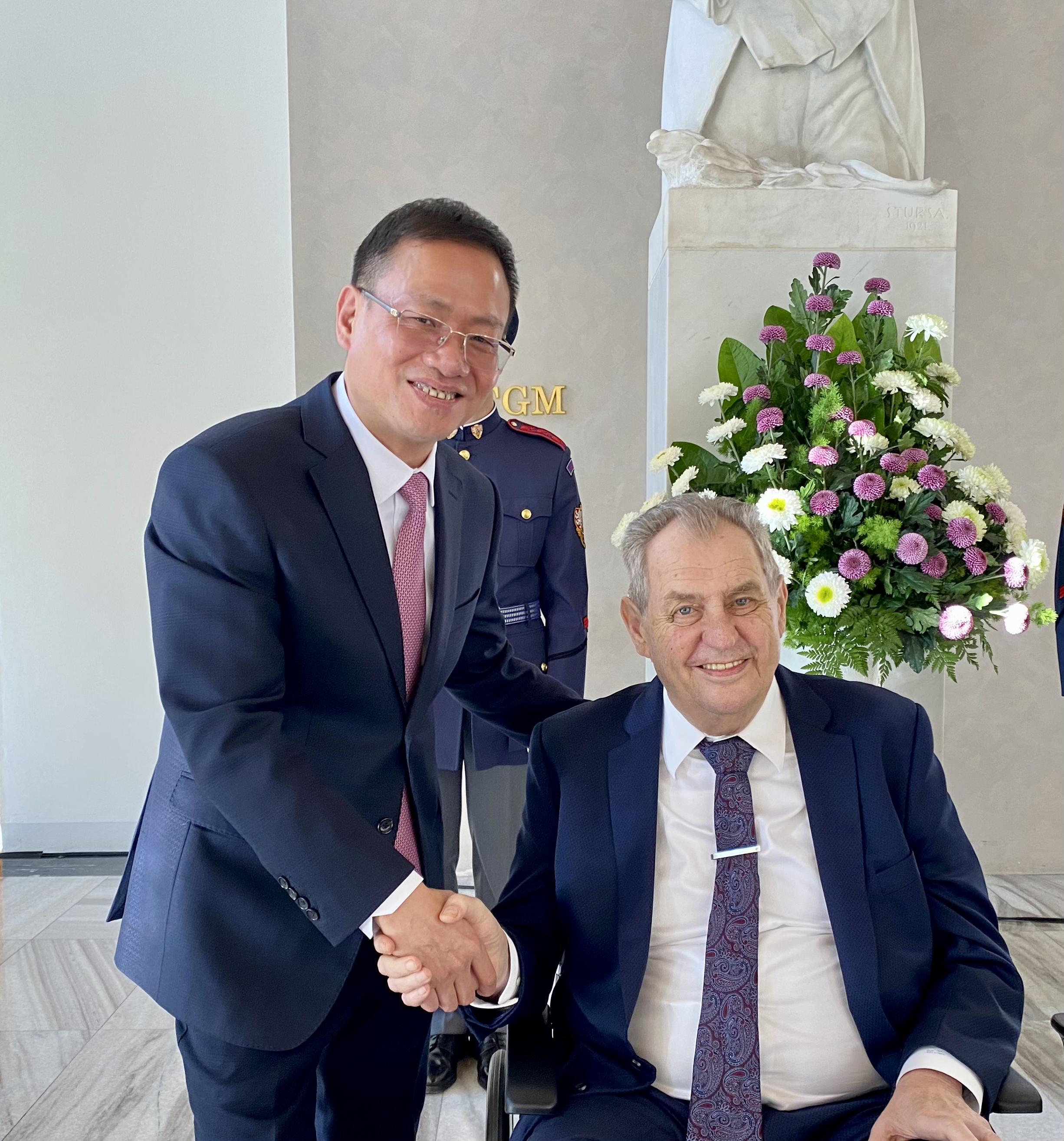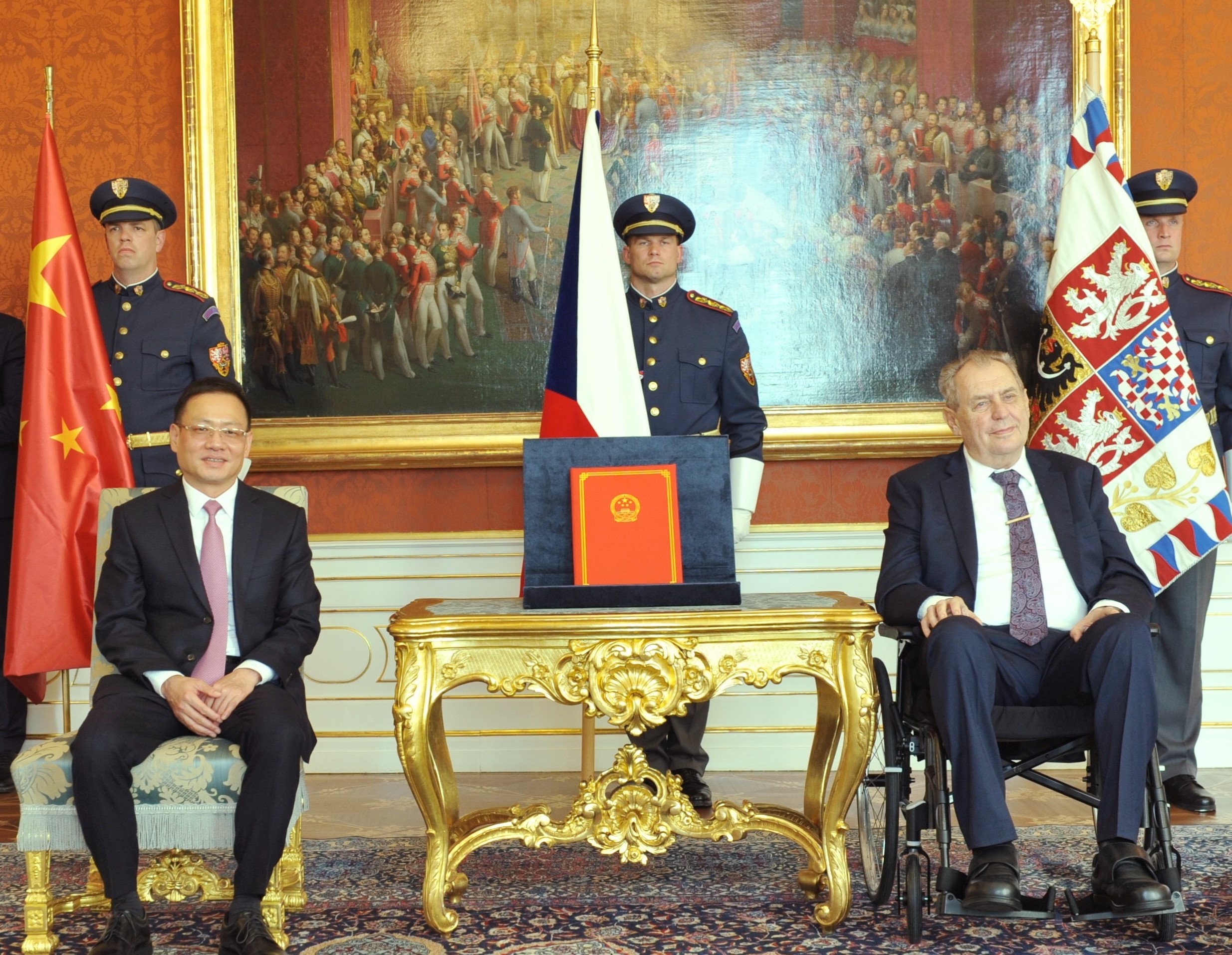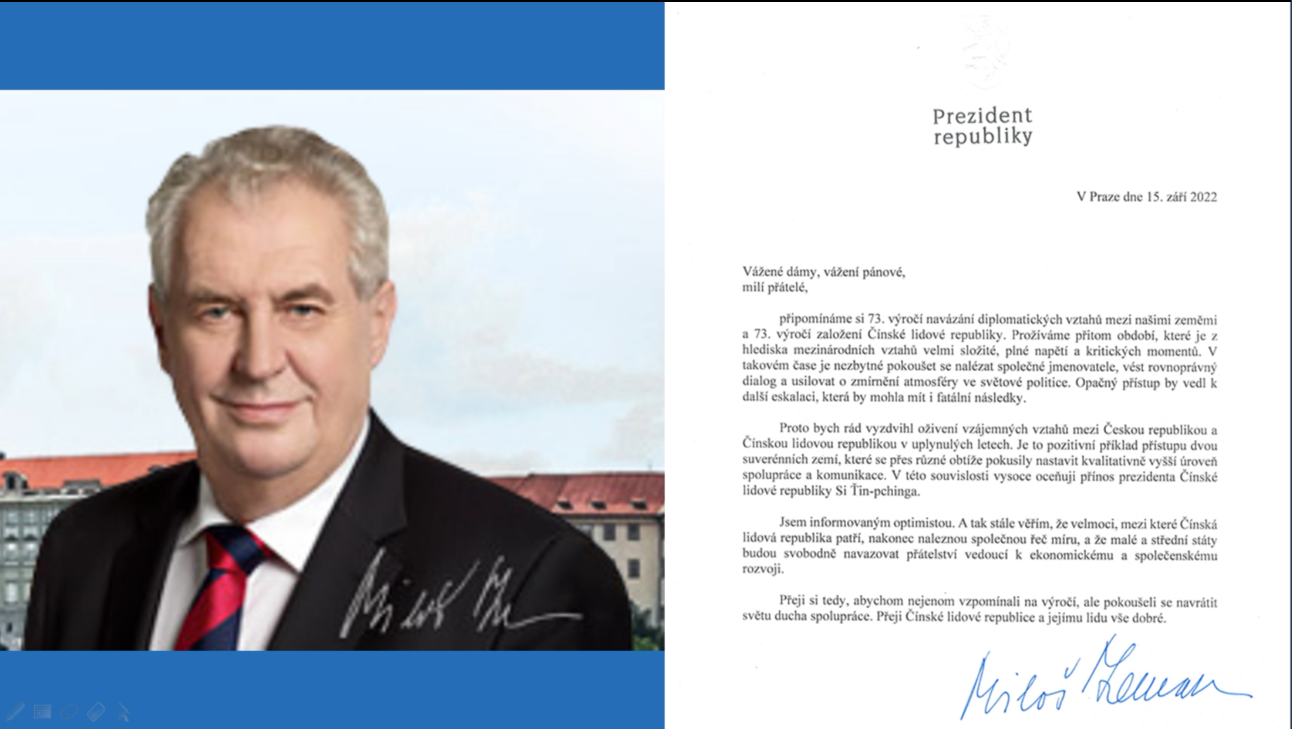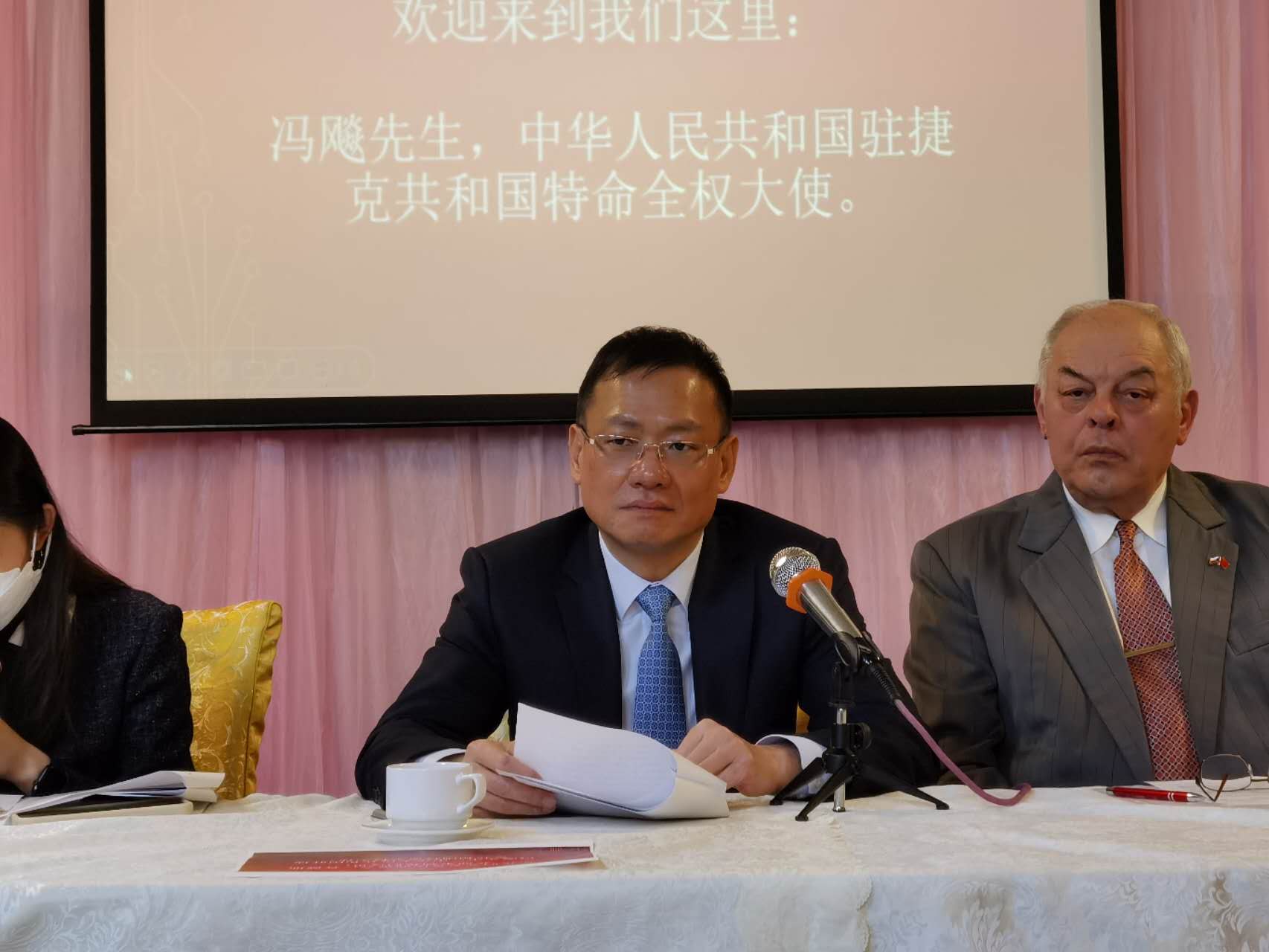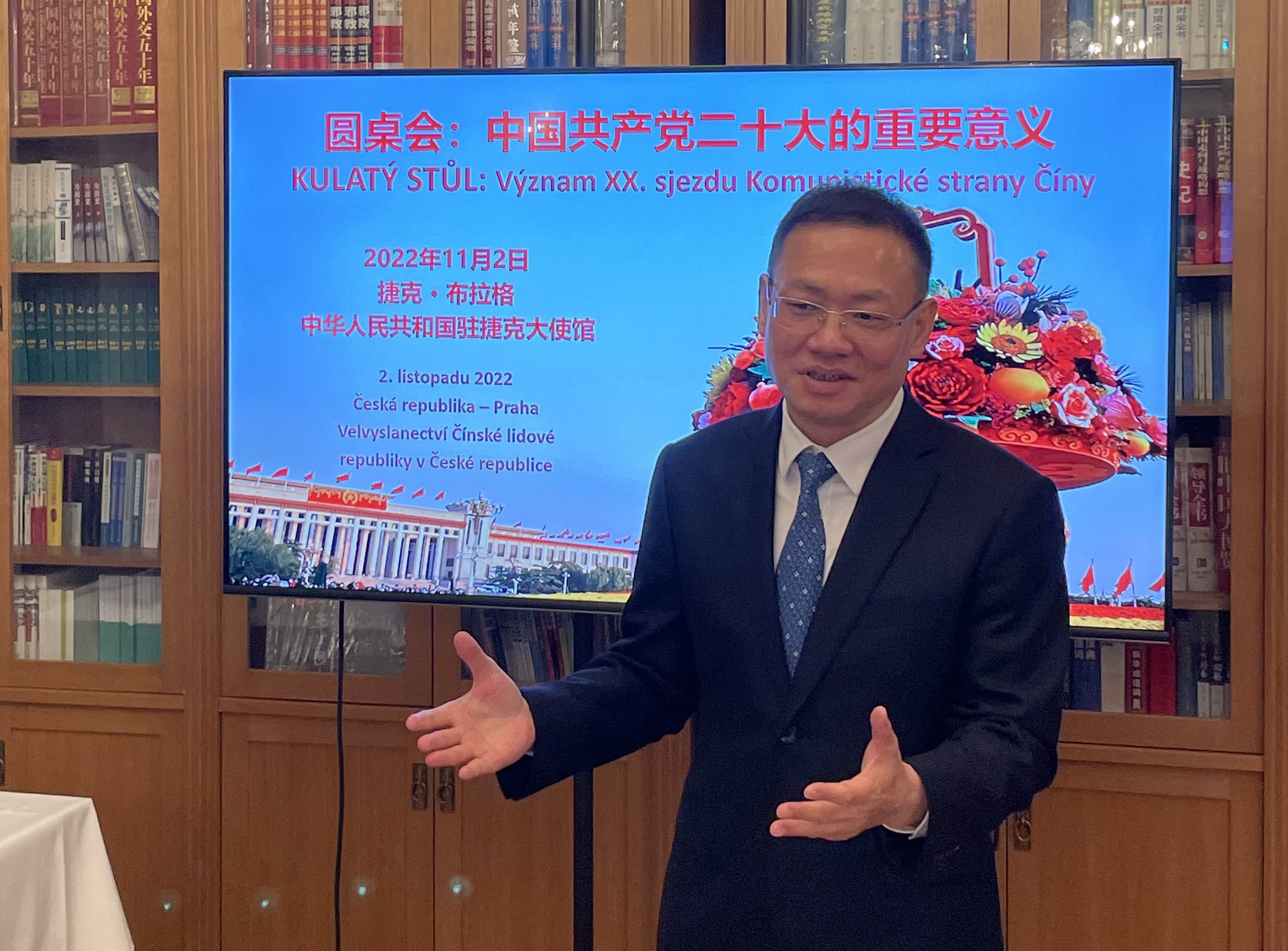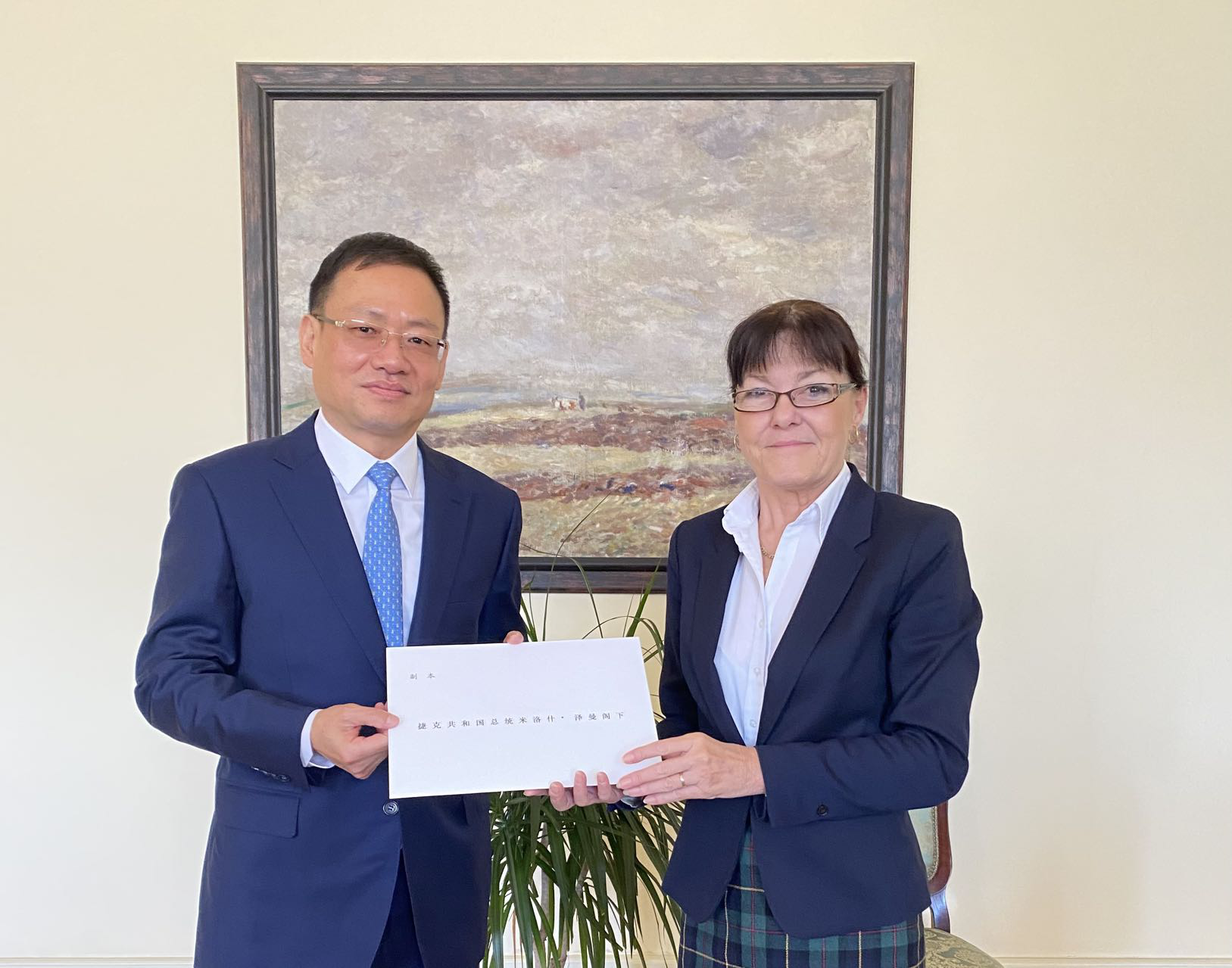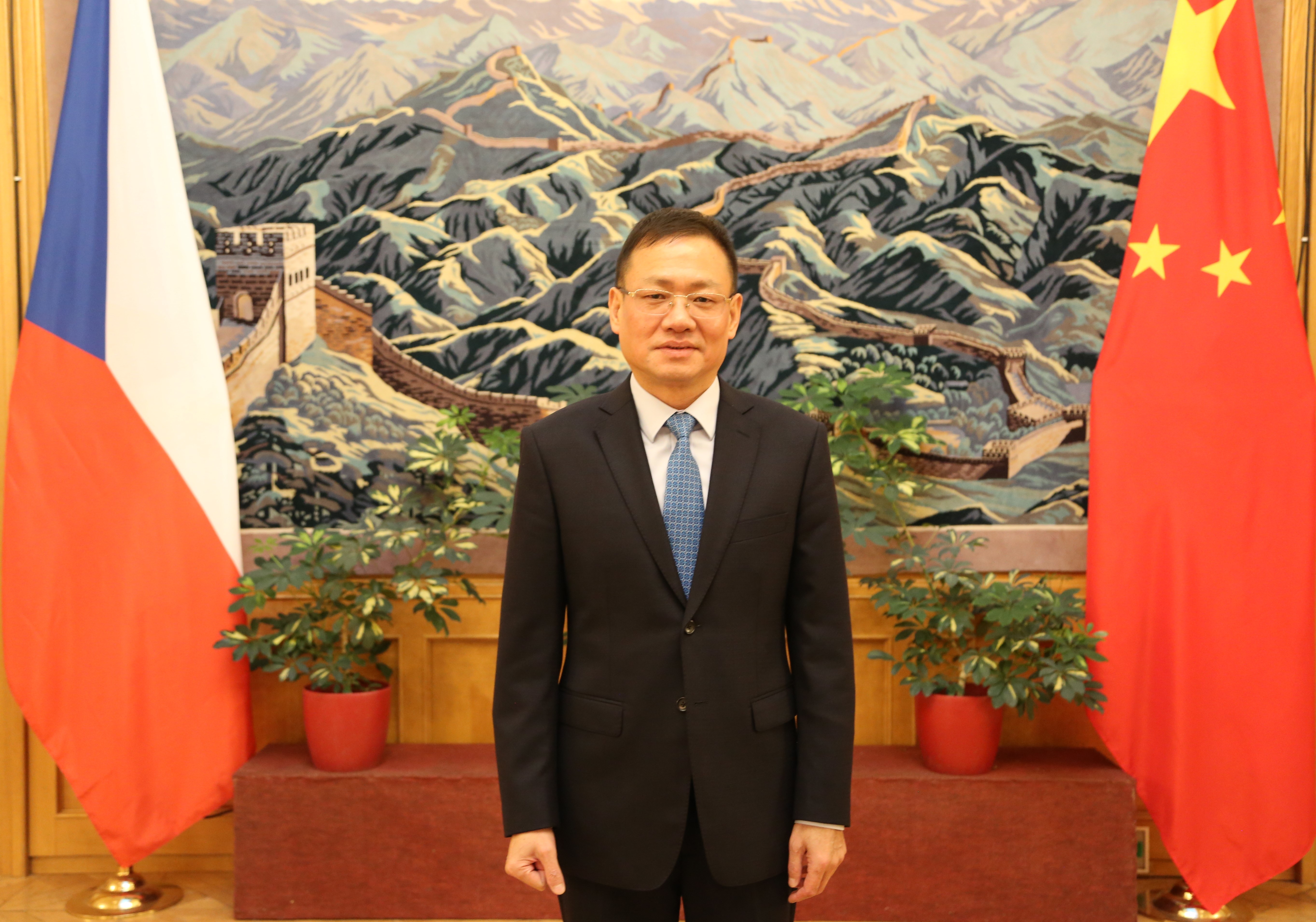In defiance of Chinas
repeated presentation and strong opposition, a few
responsible members of the European Parliament (EP) gave
permission to the Dalai Lamas visit and provided him
with a platform against China on October 24 at EPs
general assembly, allowing him to deliver a long, fact
-distorting speech to wantonly attack the Chinese government
and unscrupulously paddle his plot of splitting China. Such
erroneous naturally arouse our great
indignation.
The Dalai
Lamas speech at the EP general assembly once again
revealed his true nature of not being a mere religious
fellow but a politician-in- exile under the robe of Buddhism
who engages himself with activities aimed at splitting the
motherland. Profuse in hypocrisy, his speech is prepared
with much thought of trying to deceive and hoodwink the
international community by means of concocting lies,
confounding right and wrong and turning things upside down
so as to win sympathy and support and fan up unfavorable
sentiment against China. He dishonestly claimed
that he was not an expert in political science
so that he made the address as a simple Buddhist monk
, and that he believed in and sought for
democracy, freedom and
humility and advocated tolerance,
forgiveness so on and so forth. But under the coverage
of the beautiful veil, he obstinately holds onto his
consistent position of Tibetan independence,
alleging quite astonishingly that Tibet is an occupied
country where immense destruction and human
suffering inflicted on the people of Tibet, where
serious violations of human rights are widespread
, and its and national identity are facing the
threat of extinction. Accusing the Central Government
for having refused to engage him for talks, he appealed for
international attention and support.
From the above one can easily tell the intention
and ulterior motives Dalai harbors to split the
motherland.
Facts speak
louder than words and lies repeated even for one hundred
times cannot alter the reality. So, let us see what the
facts tell.
As is known
to all, Tibet is part of China from ancient times and it was
officially incorporated into China during the reign of Yuan
Dynasty in the early 13th century. Since then, Tibet has
been an administrative region directly under the
jurisdiction of the Central Government of China. The Dalai
Lama and the Bainqen Lama are the two leading incarnation
hierarchies of the Gelug Sect of Tibetan Buddhism. The
Central Government of Chinas Qing Dynasty granted
honorific titles to the Dalai Lama and the Bainqen Lama in
1653 and 1713 respectively, officially established their
political and religious status in Tibet, and held the power
to decide the reincarnation of the Dalai Lama and the
Bainqen Lama. Their installation and succession must be
granted and approved by the Central Government. The 14th
Dalai Lama, who is now in exile, succeeded to the throne in
1940 after the approval of the then Chairman of Chinas
national government. Tibet has never been an independent
state and no government in the world has ever recognized it
as such a state.
Peoples
Republic of China was founded in 1949 after the Chinese
Peoples War of Liberation won the decisive victory.
Such cities and provinces as Beijing, Suiyuan, Hunan,
Xinjiang and Xikang were all liberated peacefully one after
another from the rule of the former
Kuomintang government. Deciding to adopt the same
peaceful approach to Tibet, the Central Government
invited the local authorities of Tibet
to send delegates to Beijing for negotiations. In January
1951,the 14th Dalai Lama accepted the proposal for peaceful
negotiations. He sent delegates to Beijing and signed on May
23, 1951 the Agreement of the Central Peoples
Government and the Local Government of Tibet on Measures for
the Peaceful Liberation of Tibet (i.e. the 17-Article
Agreement). It was explicitly stipulated in the agreement
that national religious autonomy would be instituted in
Tibet, and the political system in Tibet or the established
status, functions and powers of the Dalai Lama and the
Bainqen Erdeni should remain unchanged. It also emphasized
that the religious beliefs, customs and habits of the
Tibetan people must be respected, and the spoken and written
language and school education of the Tibetan ethnic group
should be developed step by step along with the development
of agriculture, livestock raising, industry and commerce and
the improvement of the peoples living standard. It
specifically stipulated that in matters relating to reforms
in various fields in Tibet, there should be no coercion on
the part of the central authorities, and reform should be
carried out by the Tibetan local government of its own
accord and through consultations between the Tibetan people
and their leaders. The agreement won the approval and
support of the people from all walks of life in Tibet. The
Dalai and Bainqen also expressed their support by
a telegram and a statement respectively. With the
support of the Tibetan people, the Peoples Liberation
Army entered Lhasa and other areas without a hitch according
to the agreement and the peaceful liberation was
fulfilled in Tibet. The PLAs entry into Tibet
represents the process in which the Central Government takes
over the local authorities from the hand of the old
Kuomintang regime and it won the approval and support of the
Dalai himself and the broad masses of the Tibetan people. It
is perfectly justified that a central government of one
country exercises jurisdiction upon its own territory and
this is no exception for any country in the world. However,
the Dalai claims repeatedly that China has invaded
Tibet and refuses to recognize Tibet as part of China.
Isnt his intention of splitting the motherland
abundantly clear? In his speech the Dalai declared
flagrantly that he wants a referendum for Tibet.
Since Tibet is an inseparable part of China territory and an
autonomous region well under the jurisdiction of China,
there is no room for conducting a referendum on
Tibets future. The Dalais stand for
referendum is absolutely in the service of his
political attempts to split the motherland.
The formulation of the 17-Article Agreement,
which was reached between the Central Government and Tibetan
local governments for the peaceful liberation of Tibet, has
fully embodied the Central Governments concern and
care for the Tibetan local government. The contents of the
agreement exactly demonstrate the full respect of the
central authorities for the culture, religion and the way of
life of the Tibetan people. However, the Dalai, in his
address, slandered that the Central Government emposed the
17-Article Agreement upon the Tibetan people and
showed scant respect for the unique culture, religion
and way of life of the Tibetan people. This is sheer
nonsense and can only fool those who dont know the
reality in Tibet.
Anyone with a
little knowledge of Tibetan history should know that in the
area of the old Tibet, the Dalai Lama was the agent-in-
chief of the feudal serfdom ruling. Under his rule, the
system he practiced was theocracy characterized by the
dictatorship of upper-class monks and nobles. At that time,
95% of the Tibetans were serfs and slaves who had literally
no personal freedom. Their owners could trade and transfer
them, present them as gifts and exchange them, and could
arbitrarily carry out such savage and cruel punishments upon
them in the owners private penitentiaries as gouging
out the eyes, cutting off ears, hands and feet, pulling off
tendons, and throwing them into water. Inhumane examples
like these could be seen everywhere in Tibet and such are
the real immense destruction and human suffering
inflicted on the people of Tibet. The feudal serfdom in
Tibet was darker and crueler than the European serfdom of
the Middle Ages. It can never be emphasized to say that old
Tibet was one of the places in the world where human rights
were violated most seriously during the course of
the twentieth century. The Dalai Lama, as then the highest
dictator of Tibet, bears inevitable responsibilities for
this, and he is the real arch-criminal who has trampled upon
human rights and freedoms in Tibet. He never dares to
mention his barbarous ruling in old Tibet and has not
expressed any sense of repentance. On the contrary, he
deceives the international community by shamelessly assuming
himself as the spokesman for the freedom of
Tibet and protector of human rights and
humanity.
After the peaceful
liberation of Tibet, the immense majority of Tibetan serfs
earnestly wanted to smash the yoke of the feudal serfdom and
to carry out the democratic reform. The Central Government
adopted a very circumspect attitude toward the reform. In
accordance with the 17- Article Agreement, the Central
Government didnt use coercion to implement
such reform but allowed it to be carried out by the Tibetan
local government of its own accord. In 1957, the Central
Government also decided that in the period of the Second
Five -Year Plan (1958-1962), no reforms would be carried out
in Tibet, and whether to carry it out or not after that
should be left to the Tibet local government to decide.
However, some members of the Tibetan ruling class were
hostile to the reform and wanted to preserve the serfdom
forever so as to maintain their own vested interests.
Therefore, they deliberately violated and sabotaged the 17-
Article Agreement and masterminded armed rebellion in
certain areas in a bid to separate the motherland. In March
1959, a handful of Tibetan serf-owners, colluding with
foreign forces, mounted a general armed rebellion and
advocated flagrantly the separatist slogan of Tibetan
independence. With the support and assistance of the
broad Buddhist monks and laymen, the PLA quelled swiftly the
separatists rebellion. The Dalai Lama fled the country
after the failure of his conspiracy and has since got on the
road of confrontation with the Central Government and
Tibetan compatriots. This is what Dalai falsely described as
the course that the Tibetan people rose up against the
Chinese and I had to escape from Tibet.
Learning the truth, one cannot but feel Dalais tricks
of confounding black and white.
Proceeding from the Overall consideration of maintaining the
unification of the motherland national unity, the Central
Government waited patiently for the Dalais changing in
mind and returning to the motherland after he fled Tibet.
His position as a vice-chairman of the Standing Committee of
the National Peoples Congress had been kept for him
until 1964. However, the Dalai Lama completely renounced the
patriotic stand he once expressed and has engaged himself in
numerous activities to split the motherland. He publicly
advocates that Tibet is an independent state and
has never abandoned his stand of Tibetan
independence. He set up a government in
exile, established branch offices in many
places around the world, tossed out Principles for
Nation-building, and formulated the so-called
Constitution of the State of Tibet. He organized
rebellion forces and for many times plotted violent riots in
Tibet. He sent secret agents and intelligence personnel to
carry out terrorist activities in Tibet. He spread rumors
and calumnies and engineered other sorts of separatist
activities. He shuttled among foreign countries only to
advertise the Tibetan independence, trying to
internationalize the so-called Tibetan issue. By
analyzing what the Dalai Lama has done over the past 40
years, we can find out that he has done nothing to
serve the people of Tibet, but instead, he has
done everything trying to regain his lost paradise. These he
could re-enslave the Tibetan people and separate Tibet from
the motherland. However, his fond dreams will by no means
come true.
The Dalai Lama has fled
from the country for more than 40 years and has never since
set his foot again on the soil of Tibet. Therefore, he knows
nothing of the real situation there. In spite of this, he
talks such nonsense that Tibet is oppressed by force
and scarred by suffering and an entire people
with its unique culture and identity are facing the threat
of extinction. Then what on earth is the
fact?
After the Dalai Lama fled
amidst failure of the armed rebellion in 1959, democratic
reform was carried out at the strong request of the broad
masses of the Tibetan people and the extremely barbarous
serfdom system was abolished. In 1965, the ethic regional
autonomy was instituted in Tibet to make it one of the five
national autonomous regions at the provincial level in
China. The once serfs and slaves under the Dalais rule
became masters of their own destiny. With the help of the
Central Government and areas throughout the country, economy
in Tibet boomed fast and the living standard there increases
continuously. At the same time, the ethnic culture,
education and public health causes there have scored
tremendous progresses, and freedom of religious belief and
all the fundamental rights and freedoms have been guaranteed
to the full. During the 200 years before 1959, the
population in Tibet had been around 1 million. By the end of
2000, there were 2.6163 million people in Tibet, of whom
2.4112 million were Tibetans, representing an increase of
almost 1.5 times in the 40 years. Average life expectancy in
Tibet has risen from 36 years in 1959 to 67 years at
present. In the old Tibet, serfs and slaves, accounting for
95% of the population, were illiterates or semi-illiterates
and the few schools were open only to the children of noble
origin. In contrast, presently Tibet has established an
integrated education system covering from pre-school to
higher and professional education. More than 4,300 schools
of different categories have been set up, and the rate of
illiterates and semi-illiterates has reduced to the size of
below 40% of present population. The government has
systematically investigated, collected, collated, studied
and published the traditional cultural heritage and folk
arts of Tibetans, and stipulated clearly the study and use
of the Tibetan language and bilingual (Tibetan and Chinese)
education. The Tibetan cultural characteristics are being
further popularized. The Central Government has channeled
special appropriations to the maintenance of more than 1,700
monasteries and religious sites, the Potala Palace included.
Tibetan people fully enjoy the freedom of engaging in
religious activities. At present, fresh achievements are
being made in the reform and opening-up, economic
restructuring and all other social drives in the Tibetan
Autonomous Region, where situation is stable, economy
developing, society progressing, and people living and
working in harmony and contentment. Tibet has experienced
earth-shaking changes.
History and
facts show no tolerance towards distortion. In the past 40
years, the culture, religion and ethnic in Tibet are highly
upheld and greatly developed and are not facing the
threat of extinction as described by the Dalai Lama.
In a short span of only 40 years, Tibet has gone through a
social and economic revolution that would normally have
required centuries for mankind to accomplish. This makes
Tibet one of the fastest developed and best improved areas
of the cotemporary world in terms of various kinds of social
undertakings and human rights situation. What Dalai said
about the religious and cultural conditions in Tibet is also
sheer nonsense designed to fool, the world.
In his speech at the EP, he uttered again the
so-called genuine autonomy of Tibet and
Tibetans fully responsible for their own domestic
affairs, the words he repeated many times in recent
years. Now let us take a look at whoever governs Tibet and
how the governance is carried out. Since Tibet adopted
Ethnic Regional Autonomy. Tibetan and other ethnic
minorities officials now account for 80 percent of the
total staff in the whole region and 93.2 percent the
component members of the organs of state power at the four
levels of autonomous region, prefecture, county and
township. Tibetan citizens hold the key positions in
Peoples Congress and government of the Autonomous
Region and its affiliated regions, cities and counties.
Tibetan officials have constituted the main body of the
total staff in Tibet. Since the founding of Tibetan
Autonomous Region, the Regional Peoples congress has
formulated more than 160 by-laws and drawn up rules for
implementing national laws conforming to the local features
of Tibet. For example, in addition to the official national
holidays, the Tibetan New Year and the Sholton have been
designated as the Regional holidays; Tibet has decreed a
work week of 35 hours, five hours less than the official
national work week for workers and staff in accordance with
the special natural and geographical conditions of Tibet.
These fully show that the Ethnic Regional Autonomy is well
implemented in Tibet, and the Tibetans have realized their
ideal of self-governance. But the Dalai Lama is reluctant to
admit the fact that the Tibetans have become the masters of
their own affairs. The genuine autonomy put
forward by him is nothing but a synonym for
separation and
independence.
Moreover,
Dalai in his speech addressed to the EP said that his
initiatives and overtures to engage the Chinese
leadership in a dialogue remain unreciprocated,
Beijings attitude has hardened significantly
compared to the eighties. This again is an out-and-out
lie.
Chinas policy towards
the Dalai Lama is consistent and explicit. That is, we hope
that he could renounce his separatist stand of
Tibetan independence and come back to
the position of patriotism. The door will always be open to
contacts between the Central Government and the Dalai Lama.
The fact is that since February 1979 when he began sending
representatives to contact with the Chinese Central
Government, the Central Government has received more than
ten times delegates sent by him. The channel for contacts is
well open. What the Central Government required the Dalai
Lama to do is only that he renounces his stand of
Tibetan independence, stops his separatist
activities, and openly states that Tibet is an inalienable
part of China, that Taiwan is one of Chinas provinces
and that the government of the Peoples Republic of
China is the sole legitimate government representing the
whole of China. However, the Dalai Lama has consistently
rejected the reasonable demand of the Central Government. He
readjusted his tactics now and then, severing his contacts
with the Central Government when he thinks the situation is
favorable to him, and requesting resumption of contacts when
he feels the situation unfavorable. Although the contacts
are intermitted due to the Dalai Lamas disruption, he
has spread lies across the world that the Central Government
declined to negotiate with him and appealed to
the international community to exert pressure on the Chinese
government in an effort to attain his goal of
separation.
Looking back at the
history of contacts between the Central Government and the
Dalai Lama for more than 20 years, it is clear that although
the Dalai Lama kept on changing his tricks, his stand of
Tibetan independence still remains unchanged.
Even when he is being engaged in contacts with the Central
Government, he never relinquishes his separatist activities
both at home and abroad. Isnt the speech given by the
Dalai Lama at the EP an evident proof of his activities to
oppose the Central Government, split the motherland and
undermine the national unity?
The
Chinese government has time and again reiterated that the
issue of the Dalai Lama is not a religious issue but a
political one, and that the Dalai Lama is not merely a
religious figure but a politician-in-exile who indulges in
activities of splitting the motherland. There is not at all
the so-called issue of Tibet. The situation in
Tibet is quite satisfactory and the Tibetan people are
content with it. What really exists is the issue of
Dalais separatist activities. We disagree to any
country and international organizations that render
invitation to and meeting with the Dalai Lama in any name
and style and provide the Dalai clique with venues for doing
separatist political activities. Such acts by a few members
of the EP as to allow Dalai to step onto the EP forum to
deceive the international community has not only greatly
hurt the feelings of the Chinese people but also damaged the
healthy advancement of the Sino-European
relations.
Recently, a few members
of the EP who have prejudice against China frequently tabled
in confrontational style some irrational bills or
resolutions to deliberately vilify China. These bills or
resolutions repeatedly make irresponsible remarks on such
issues as Tibet, Taiwan, human rights and religious freedom.
By distorting facts or even fabricating stories, they are
aimed at making unwarranted charges against China. We
cant help asking wherever the EP is going to drag the
Sino-European relations to?
We
sincerely hope that the EP could take into consideration of
the overall Sino-European friendly cooperation relationship
and no longer do anything that will hurt the feelings of the
Chinese people and be detrimental to the image of the EU. We
hold that dialogues should be held between us on the basis
of mutual respect and equality so as to promote our mutual
understanding, broaden our consensus and reduce
our misunderstanding and differences. As for the
issue of Tibet, we would rather hope that the EP members
could put aside prejudice and learn the true picture of
Tibet by visiting there themselves. In this way they will be
able to avoid making erroneous judgments and conclusions
based on biased opinions and information and avoid hampering
the sound development of Sino-European relations.

